Two weeks ago Paul & I went to Sasquan, the Spokane Worldcon.
It was his first time on a Worldcon committee, although he did put together the program book for the Seattle NASFIC. At Sasquan he ran literary beers. A few months ago this seemed like a good idea (he likes writers; he likes beer) but in practice he found it ate up too much of his on-site convention time. We hardly managed to see any programming together, not even the Hugo Awards. I watched them from the second balcony of the theater, while he watched from the convention lounge area, “Guinan’s,” the location of the literary beers.
We did watch the masquerade together from Guinan’s. I rarely watch the Worldcon masquerade, but since I wandered into the lounge to find out if Paul was done for the evening about when the masquerade was supposed to start, it seemed like the thing to do. Overall, it was a pretty good show and the win for the Victorian Justice League group costume was well-deserved.
We stayed in the party hotel — I’m sorry, the “Meet & Greet hotel” — the Davenport Historic.
We were there along with a quorum of Canadian fans and honorary Canadians. Originally built in the 1920s, restored and rescued from almost certain demolition in 2002, the Davenport was SWANKY. Fancy lobby, fancy ballrooms, fancy beds with astonishingly thick princess-and-the-pea mattresses that you needed a stepladder to climb up into. The mezzanine level of the grand lobby was ringed with large black and white photographs of people living it up in the Davenport in the 1920s, which got me to start calling it The Overlook. Alas, I did not encounter any evidence of the paranormal. And I looked! I’m a certified ghost hunter, you know.
I attended all the bid parties, even though I had pretty much made up my mind for Helsinki. Helsinki won! I remembered to pre-support and vote! Check it out!
I even wore my bright turqoise shirt around after pre-supporting, and my friends were, like, “who are you and what have you done with Julie?” because seeing me in a brightly-colored T-shirt is almost as weird as seeing Neil Gaiman in one. All the bids had excellent parties, and seemed like nice people, and I wish them well in future fannish endeavors.
Facebook revealed a steady stream of people I knew, who were at the convention, who I never saw. I regret that. I love you guys! And no, I’m not drunk!
I was expecting my early Wednesday reading to be completely empty, but apparently going around the previous evening and strong-arming, I mean, encouraging my friends to show up paid off, and the room was full! Thanks, everybody!
My favorite panel I went to was Bad Science on TV, which I was on, but I wasn’t the reason it was good. That honor goes to Cordelia Willis, daughter of SF luminary Connie Willis. She works as a forensic scientist, and inherited her mother’s voice, love of The X-Files, and sense of humor. I particuarly loved her description of her first-ever forensic class being full of young women who wanted to be Scully.
My favorite restaurant find was a place called Neato Burrito, which had a regular sort of burrito joint in the front, but you could head down a strangely ominous hallway and find yourself in a small red-lit bar that felt like a speakeasy in Twin Peaks. We managed to make it to O’Doherty’s Irish pub only once, although a couple of times we failed to go there because it was too crowded. I dragged Paul to Frank’s Diner because it was in a beautiful old train car, and they had half-size Benedicts.
The place I ended up going to the most often was Santé — a kind of French bistro-ish place that makes their own charcuterie. They were in between the convention center and the hotel, and they were good, and other people kept inviting me there, and I ended up going four times.
The convention center is in downtown Spokane, next to a really nice park along the river. We would have spent more time exploring, I think, except that Paul was so busy working the convention, and the air was so full of smoke from wildfires in the mountains.
On a couple of days it was a modest campfire-scented haze that turned the sun bloody and made the sky look strangely artificial, like a tinted daguerreotype. But on Friday we were blanketed with a heavy, choking pall that worsened steadily throughout the day, until the air carried a distinct burning tang even deep inside the convention center, ashes drifted outside, and we seemed right in the middle of the apocalypse. My brain had a really hard time absorbing the idea of outside != fresh air.
That was the most surreal thing going on. The second most surreal thing about the convention was the spectre of the sad and rabid “puppies.”
For those of you who haven’t heard — or have heard only rumors and innuendo — the plain facts are these:
A couple of years ago writer Larry Correia tried to mobilize his fans to join Worldcon, vote, and get him a Hugo. He called this effort Sad Puppies 1. The “getting him a Hugo” part failed. The next year he tried to get more of his picks on the ballot. He called this effort Sad Puppies 2. A few SP2 picks did end up on the final ballot, but none of them won. Sad Puppies 3, this year, continued that effort. This year also brought a splinter group, Rabid Puppies 1.Together, they managed to completely dominate the ballot, resulting in all, or nearly all, slated works in several categories. Bloc and slate voting for the Hugos is not technically illegal. It was, however, widely received by the rest of fandom as dirty pool. Controversy ensued. Much, much controversy. It had a snowball effect — the controversy generated press, which generated controversy.
Because of the Hugo controversy — probably — this convention had a record-breaking number of total members (attending and supporting members can both vote on the Hugos). A couple of notable sad/rabid luminaries — people like Lou Antonelli and John C. Wright, who were not only nominated, but also active in defending the slates and the general sad/rabid cause — were attending, and on programming.
Some people expressed worry that “something” was going to happen — because tensions were high — because there were rumors that Gamergaters had gotten roped in — because Lou Antonelli had already done this bizarre thing where he sent a letter to the Spokane police warning them that Worldcon Guest of Honor David Gerrold was a dangerous character — because everything was weird and felt like unmapped territory.
Still, on the ground, I never noticed anything especially peculiar in the process of happening. I was on the lookout for puppies and puppy-related activity, out of curiosity more than anything. I had no idea how many of their supporters were actually going to show up, and how they would act if they did. Would they proudly announce themselves by all wearing the same T-shirt or something? Or would they be indistinguishable from regular fans?
Indistinguishable, I would say.
Every once in a while I would come upon a knot of people huddled in a conversation that seemed a little more tense and furtive than the usual discussion about the best Doctor or whether the next Star Wars movie is really going to be any good, but I didn’t want to make my eavesdropping too obvious, so I still don’t know if any of them were puppy sympathizers. There were some pointed badge ribbons (“I prefer kittens” with a circle/slash around a puppy silhouette) and some weirdly ambiguous badge ribbons (I saw “Ask not for whom the puppies bay…” and thought it might be pro-puppy, but wasn’t entirely sure. ). I spotted John C. Wright and his wife waiting for a table at Azteca when I was on my way out. There was one guy in front of me at the “writing about controversies” panel who seemed all stressed out and had the body language of either being a tweaker, or wanting to ask a really confrontational question, but they never called on him, and he left without a fuss.
I attended a meetup for the people who like to comment at File770, and most of us were cranky about the whole puppy thing (which is what drew us to File770 in the first place). What we did was drink beer and chat about a wide variety of topics, which included how irritating most of us found the puppies. I think I spotted Lou Antonelli lurking about in the same restaurant. But nothing happened.
The Hugo ceremony was Saturday night. I got there a bit late, coming from the annual Worldcon meeting of The Fellowship of the Duck (at Santé), so I watched from the high balcony and had lots of space to myself.
First of all, I have to commend the organizers, hosts and presenters — they did a smashing job of keeping things as entertaining and light-hearted as possible, while still acknowledging the unusual nature of the Hugos this year. For example, most years don’t have a bit explaining what “No Award” means, or detailing the nominating and voting process. It was neutral in delivery, but also felt targeted, a lesson — to those of you out there who don’t seem to understand in a technical sense how this works, here’s how it works. Pay attention.
The first award was the John W. Campbell Award for the best new writer, which is technically not a Hugo. This went to Wesley Chu, a non-puppy-pick. The crowd was enthusiastic.
Several fan awards were given out, announced by Nina Horvath, the TAFF (Trans Atlantic Fan Fund) winner, a delightful fan from Austria I had met the previous weekend. Fan Artist, Fan Writer, Fanzine — all of them went to a person or publication, but they all went to a non-slated pick. A trend seemed to be emerging.
Then we got to Best Related Work, the first all-slate category. My stomach knotted up. The room quivered. This was it. This was when we would know — was the record number of supporting memberships “groundswell of slate voters defending the slates” or “groundswell of SF fans defending the Hugos”? I knew which one I thought it was, but I’ve been wrong before.
“The voters have decided to give no award in this category.”
The crowd applauded. It felt spontaneous and relieved. Some people have suggested that it was cruel, designed to hurt the unawarded nominees in the room that night. That was not my impression at all, but — you know, take it how you want it. Anyway, what was the alternative? Stony silence? Wouldn’t that have been even weirder?
(I was told the celebrating after each No Award was much more raucous over at Guinan’s — that it involved toasting and cheering.)
I saw one person down near the front leave after the second or third No Award. Was it John C. Wright? It was so hard to tell from the second balcony. Fandom is absolutely chock full of big-bellied middle-aged white guys in fedoras.
Every all-slate category was given No Award. The only slated winner was Guardians of the Galaxy. The crowd applauded every No Award, some more enthusiastically than others. At one point there were scattered boos, but I don’t remember exactly when, and David Gerrold (our host, along with Tannanarive Due) shut it down pretty quickly by requesting “no booing.”
After the Hugos there were parties, as is traditional. George R. R. Martin even hosted a big Hugo Loser’s Party, (which I personally was not invited to even though obviously I hadn’t won a Hugo myself — what an outrage!) The losing site bids also hosted parties, because they didn’t want to cart all that stuff home.
On Sunday I attended the “Hogu” awards, satirical awards smiliar in spirit to VCon’s Elrons, although the award was a twisted drinking straw rather than a bronzed lentil. (Upon leaving, I was coerced into doing the “happy puppy wriggle” which I think is like twerking for middle-aged SF fans.) I also went to a fairly amazing panel on which Vonda McIntyre, David Gerrold, George R.R. Martin, and Connie Willis talked about their experiences in fandom. They made a point of mentioning how many times they have each lost Hugos, especially to each other.
During the “controversy” portion of the run-up to Worldcon, many people on the sad/rabid side of things put forth a mighty effort to justify their actions. One of their key defenses — courtesy Sad Puppies 3 Grand Poobah Brad Torgersen — was that the puppy initiative was necessary because the quality of Hugo winners had declined markedly in recent years. That recent Hugo winners were crap, basically. That was his narrative. “You guys have been awarding horrible crap for the past 10 – 20 – 30 years.” (The exact time period varied a bit.)
And fandom was, like, “DUDE, WE ARE STANDING RIGHT HERE.”
I mean, if you were a slated nominee who felt bad when people applauded No Award, just try to imagine how the entire rest of fandom felt when the leaders of the slating campaign — you know, the campaign that got you nominated — started dissing their choices, motives, integrity, and general character. Or, worse, imagine how the winners of the last 10-30 years felt. Were puppy leaders deliberately trying to hurt the feelings of Ann Leckie, or John Chu by suggesting that nobody really liked or admired Ancillary Justice or “The Water That Falls on You From Nowhere,” they just got awarded Hugos in order to fulfill some affirmative action checklist?
Applause is one thing. But the rhetoric of the sad and rabid “puppies” this year was extravagantly hurtful toward a huge swath of fandom — anyone who has given, or received a Hugo in the last 10-30 years, anyone who questioned their tactics, anyone who disagreed with them on pretty much any point. It was routinely insulting, belittling, childish, and downright mean. At every turn, they seemed to be going out of their way to pick a fight with the very people they expected to award their choices in August. It seemed mystifying, from a strategical standpoint. Is it really so hard to act like a decent human being for a few months? What makes you think people are going to vote for you after you’ve called them all horrible names?
Some people worried this hubris indicated that they really did have the numbers to win. Others suspected that it was driven more by a lack of understanding of what it would take to win. They didn’t understand the use of No Award. They didn’t understand the voting math that makes it so easy to fill up the nominating ballot with a slate and a bloc vote, but so hard to win the final award with the works on that same slate, unless those works also have broad fannish support.
When nominated honestly, the works on the ballot tend to already have strong support behind them — because that’s how they got on there in the first place. Fannish support is why Guardians of the Galaxy won, and every other slated pick lost.
The slates as run this year made fandom angry in three ways: dishonest slating/bloc voting; obnoxious and insulting behavior; and poor quality work overall. (I wasn’t the only person who started to get resentful in the “why are you making me read all this crap?” sense while making my way through the Hugo packet, a task which is usually a pleasure.)
This makes it hard to say what fans who weren’t triply-provoked would have done. Would better works, or better behavior from puppy leadership, have changed the outcome? Hugo voters have demonstrated in the past that they hate to feel manipulated, and will respond negatively to what they think is unethical campaigning, slating, or other attempts to game the system. They’ve smacked down such attempts before — the Church of Scientology tried it back in the 80s, for example.
The puppy side has tried strenuously to argue that their slates are really no different than the recommendation lists or eligible works lists that other groups put out. But there’s no winning that argument. It’s a slate if the voters think it’s a slate. If the voters think a work is only on the ballot because of a slating and bloc voting campaign, or anything else they think is dishonest, they will always vote it below No Award.
That “only on the ballot because” part is important. As I already pointed out, Guardians of the Galaxy was on the slate, and won anyway. The perception was that GotG was a no-brainer — there wasn’t any scenario where fans could imagine such a wildly popular (within fandom) SF movie not making it onto the ballot. And they voted accordingly.
The end results do seem to show that voters in general resisted the temptation to give the award to the best thing in an all-slate category if they still didn’t think it was Hugo-worthy. Would it have been better to do that? To give the award to something perceived as “pretty good” just because it was the best thing on the ballot? I don’t think so. The Hugos are a populist award, but the reason they have the prestige they do, is because the voters take them seriously. No Award is a last defense against something voters don’t feel is worthy of a Hugo — for any reason. “Dishonest slating” is every bit as valid a reason as “not Hugo-quality.”
In the past couple of weeks, we’ve seen a lot of screaming and crying from the puppy side of things — many of them seem to regard losing to No Award as being somehow unfair. Dirty pool, you might say. It comes down to the usual special pleading — it’s perfectly okay for them to violate the spirit of the Hugo nomination process in a not-technically-illegal fashion, but it is an OFFENSE AND AN OUTRAGE if the Hugo voters respond by using No Award in exactly the fashion it is intended to be used.
Some of them even seem to think not winning, period, is somehow unfair. In their impassioned ranting, it seems that some of them forget there are always at least four losers in each category. This year, in some categories, there were five losers.

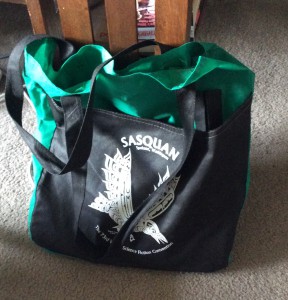
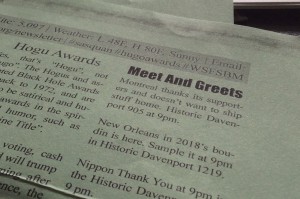
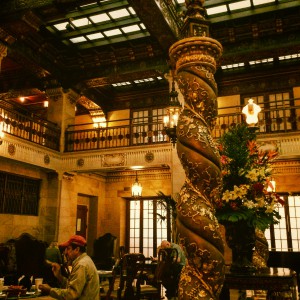
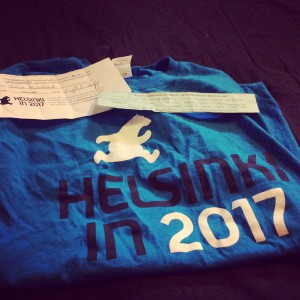
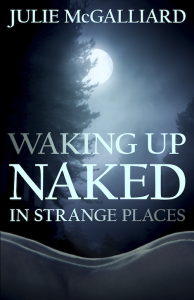
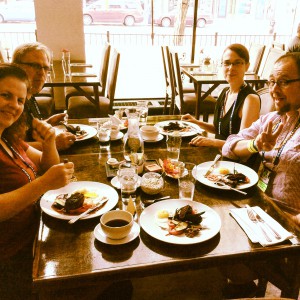
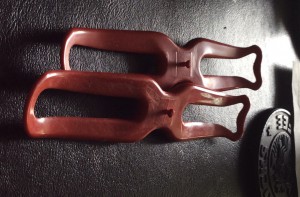
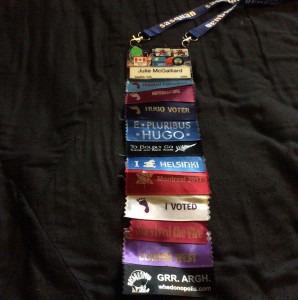
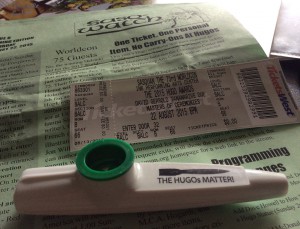
Enjoyed this — thanks!